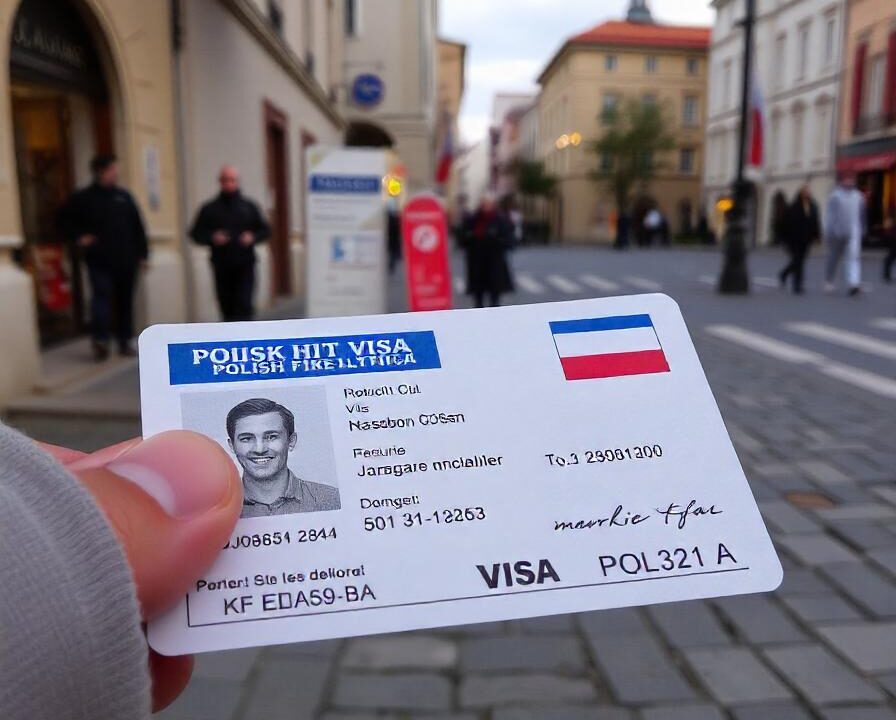Extending your Polish visa may become necessary if you need more time to complete your studies, work, or other activities in the country. The process can seem complex, but with proper preparation and knowledge of the requirements, you can handle it efficiently. This guide explains how to extend your Polish visa without unnecessary stress.
1. Understand the Types of Polish Visas and Extension Eligibility
Before diving into the extension process, it’s essential to understand which visa you have and whether it can be extended.
- Schengen Visa (C-Type): This visa allows short-term stays (up to 90 days) within the Schengen Area. Extensions for Schengen visas are rare and typically only granted in extraordinary cases, such as unforeseen medical emergencies, humanitarian reasons, or force majeure.
- National Visa (D-Type): This visa is designed for long-term stays, typically for students, employees, or researchers. The D-Type visa is valid for up to one year, and you can apply for an extension or transition to a temporary residence permit if you plan to stay longer.
It’s crucial to verify your eligibility for an extension based on the type of visa you hold. The best way to ensure you meet the requirements is to check with the Voivodeship Office (Urząd Wojewódzki) or the local immigration office in Poland.
If you need more explanation or more information, you can book a consultation and speak to Happy Face
2. Know the Timing and Deadlines
When planning to extend your visa, timing is everything. It’s important to submit your application at least 45 days before your visa expires. However, it’s recommended to start preparing your application earlier to avoid any last-minute complications.
Poland’s immigration offices may take several weeks to process visa extensions, so applying on time ensures that you remain in the country legally during the review process. If you apply too late, you may be forced to leave Poland and reapply for a new visa from your home country, which could result in delays and additional costs.
3. Gather the Required Documents
The documents required for extending your visa will depend on the reason for your stay and the type of visa you hold. Below are the most common documents you’ll need:
- Visa Extension Application Form: You can obtain this form from the Voivodeship Office or download it from their website. Ensure that the form is filled out accurately and completely.
- Valid Passport: Your passport must remain valid for at least three months beyond the extended stay you are requesting. It should also have enough blank pages for any necessary stamps.
- Proof of Legal Stay: This includes your current visa and any entry or residence permits. If your visa has already expired, you may not be eligible for an extension.
- Reason for Extension: Provide documents that explain why you need to extend your stay in Poland. For example, students may need to provide proof of continued enrollment at a Polish university, while employees may need a letter from their employer stating the need for continued employment.
- Proof of Financial Means: You must show that you have enough financial resources to support yourself during your extended stay. This could be bank statements, scholarship documents, or proof of employment.
- Health Insurance: You must provide proof of health insurance coverage for the extended period of your stay. The minimum coverage required is generally €30,000.
- Accommodation Proof: Provide documentation that proves you have a place to stay during your extended period in Poland, such as a rental agreement or confirmation from a host.
If you need more explanation or more information, you can book a consultation and speak to Happy Face
4. Submit Your Application
Once you have gathered all the necessary documents, you will need to submit your visa extension application at the appropriate Voivodeship Office. Keep in mind that some offices require you to schedule an appointment, so plan ahead.
During your appointment, submit your documents and pay any applicable visa extension fees. Make sure to keep a copy of the receipt and any confirmation documents. The immigration office may ask you for an interview to better understand the reason for your extended stay.
If you’re unable to submit your documents in person, some regions allow for postal applications. Be sure to check the specific rules and guidelines for your local Voivodeship Office.
5. Wait for Processing
After submitting your application, the waiting period begins. The processing time for visa extensions can vary depending on the type of visa and the reason for the extension. Typically, it can take anywhere from one to two months for the authorities to make a decision.
During the processing period, you are allowed to remain in Poland legally, even if your original visa expires. This means you won’t have to worry about overstaying while waiting for your visa extension decision. Make sure to keep all receipts and proof of application with you during this time in case you’re asked to show proof of your pending visa status.
6. Consider Transitioning to a Temporary Residence Permit
If your long-term plans in Poland exceed a year, it may be better to apply for a temporary residence permit (Karta Pobytu) rather than extending your visa. The residence permit allows you to stay in Poland for up to three years and can be renewed. This option is particularly helpful for students, employees, and researchers planning to stay in Poland for an extended period.
To apply for a residence permit, you’ll need to submit many of the same documents required for a visa extension, including proof of enrollment or employment, financial means, and health insurance. The residence permit process also involves submitting biometric data, such as fingerprints.
If you need more explanation or more information, you can book a consultation and speak to Happy Face
7. Avoid Common Mistakes
- Late Applications: Applying too close to your visa expiration date may cause unnecessary stress or even result in denial. Always apply well in advance.
- Incomplete Documentation: Double-check that all your documents are accurate and up to date. Missing or outdated documents could delay your application or lead to a rejection.
- Not Having Financial Proof: Ensure you provide solid proof of financial resources. Visa authorities are strict about ensuring that applicants can support themselves during their extended stay.
8. Stay Updated on Immigration Policies
Immigration laws and policies in Poland can change, so it’s important to stay informed about any updates or changes that might affect your visa extension. Regularly check the Polish immigration office’s website or consult with an immigration lawyer if you’re unsure about the latest rules and regulations.
If you need more explanation or more information, you can book a consultation and speak to Happy Face
Disclaimer








